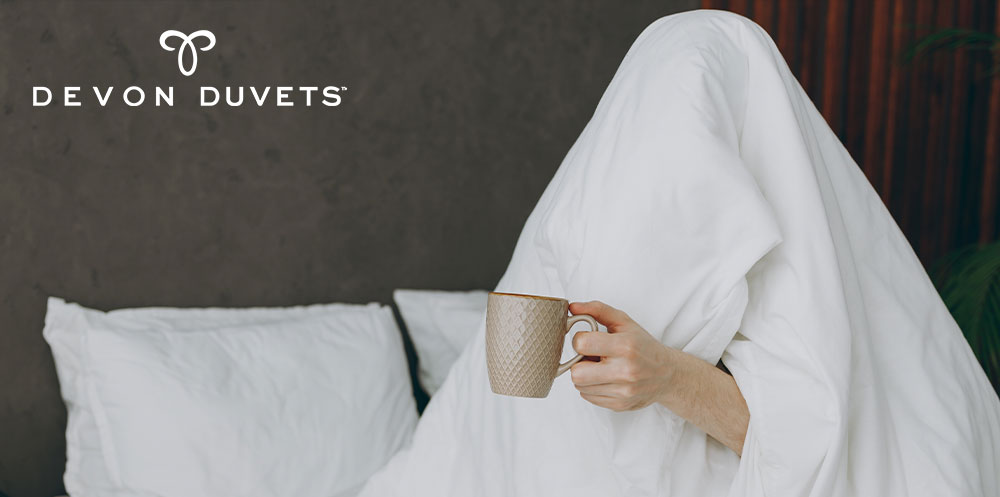Does caffeine affect your sleep?

Nearly 90% of us drink caffeine each day to help decrease sleepiness during the day and boost performance. The downside is that if too much caffeine is consumed later in the day, it can interfere with your body’s natural ‘go to sleep’ cues, leading to sleepless or restless nights. It becomes an on-going cycle as you’ll feel sleepy in the mornings and consume more caffeine during the following day to boost your energy!
What drinks are high in caffeine?
Many everyday foods and drinks contain caffeine naturally, but it can be made in a lab and added to some medicines - and products such as energy drinks. An average cup of hot chocolate is approximately 0.25 litres (8 fluid ounces) and will contain 3-13 milligrams of caffeine. Tea is higher at 40-120 milligrams of caffeine, whereas coffee is higher still with 102-200 milligrams of caffeine. The real ‘caffeine culprits’ are energy drinks, which depending on the size, could have up to 500 milligrams of caffeine.
How can caffeine impact on my sleep?
Common effects of caffeine on sleep include lengthening the time it takes to fall asleep, altering the time spent in deep sleep and contributing to reduced sleep quality. There are also certain health issues that can be made worse by caffeine, such as migraines, high blood pressure, heart arrhythmias and gastrointestinal issues. If you have these types of issues and are taking medication, then it’s always worth checking with your doctor to see if you might need to limit your caffeine intake – or avoid it altogether.
How long before bed should I stop drinking caffeine?
This will depend on when you plan to go to bed - and people can vary in their response to caffeine. It can be affected by factors such as age, sex, genetics and any mediations you might be taking. However, as a general guideline, you can expect the effects to lessen after eight or more hours! Experts suggest, therefore, that you should stop drinking caffeine at least eight hours before you want to go to sleep.
What quick steps can I take to minimise caffeine impacting on my sleep?
- Stop consuming caffeine at least eight hours before bedtime
- Track how much caffeine you are drinking, and then
- Slowly cut back on caffeine by switching to less or non-caffeinated options
Are there other ways to boost my energy?
As mentioned above, many people consume caffeinated drinks because they haven’t slept well…but drinking too much caffeine might be one of the reasons they aren’t getting a good night’s sleep. Getting the right amount of restful sleep will help you feel more energetic and reduce the need for caffeine. In addition to the steps mentioned above, there are a few other ways to help achieve this:
- Create a relaxing environment in your bedroom: Make sure you have comfy bedding – preferably bedding that is made from natural materials that are breathable and temperature regulating. Wool bedding is ideal for this as it helps to keep your core body temperature balanced throughout the night and means you wake up less often. It’s also dust mite resistant so perfect for those that have dust mite allergies. You can find information about our individually handcrafted British wool bedding on our website.
- Decrease light exposure before bed: Dimming lights and avoiding screens that emit ‘blue light’ before bedtime prepares your body for sleep. Try to avoid having a TV in the bedroom and leave your devices in the living room, where they can’t disrupt your sleep.
- Exercise: Regular exercise is associated with less daytime sleepiness – even a gentle 20-minute walk in the fresh air each day can help.
- Decrease your sugar intake: Sugar can also affect the quality of sleep, so try to avoid consuming sugar close to bedtime. We have covered this in more detail in an earlier blog.
The Devon Duvets team are here to help if you have any questions about any of our natural bedding ranges. Just call 01752 345399 or get in touch via email.
If you are experiencing ongoing sleep issues, then always consult your doctor or other medical practitioner.


